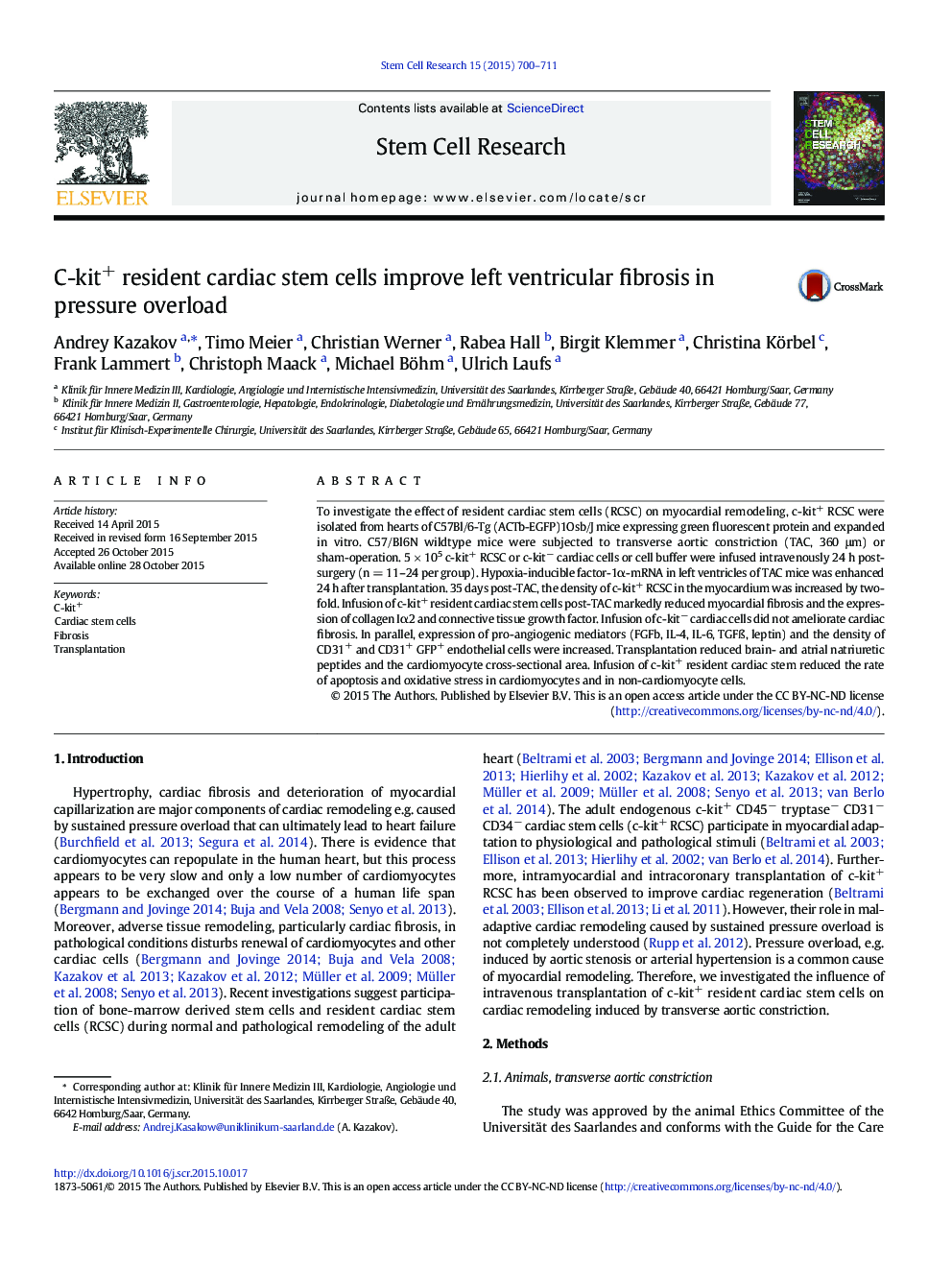| Article ID | Journal | Published Year | Pages | File Type |
|---|---|---|---|---|
| 2093913 | Stem Cell Research | 2015 | 12 Pages |
•C-kit+ resident cardiac stem cells were intravenously infused after aortic ligation in mice.•Transplantation of stem cells induces the following effects in the pressure overloaded left ventricular myocardium:•Reduction of fibrosis and cardiomyocyte cross-sectional area•Increase of endothelial cells•Reduction of apoptosis and oxidative stress
To investigate the effect of resident cardiac stem cells (RCSC) on myocardial remodeling, c-kit+ RCSC were isolated from hearts of C57Bl/6-Tg (ACTb-EGFP)1Osb/J mice expressing green fluorescent protein and expanded in vitro. C57/Bl6N wildtype mice were subjected to transverse aortic constriction (TAC, 360 μm) or sham-operation. 5 × 105 c-kit+ RCSC or c-kit− cardiac cells or cell buffer were infused intravenously 24 h post-surgery (n = 11–24 per group). Hypoxia-inducible factor-1α-mRNA in left ventricles of TAC mice was enhanced 24 h after transplantation. 35 days post-TAC, the density of c-kit+ RCSC in the myocardium was increased by two-fold. Infusion of c-kit+ resident cardiac stem cells post-TAC markedly reduced myocardial fibrosis and the expression of collagen Iα2 and connective tissue growth factor. Infusion of c-kit− cardiac cells did not ameliorate cardiac fibrosis. In parallel, expression of pro-angiogenic mediators (FGFb, IL-4, IL-6, TGFß, leptin) and the density of CD31+ and CD31+ GFP+ endothelial cells were increased. Transplantation reduced brain- and atrial natriuretic peptides and the cardiomyocyte cross-sectional area. Infusion of c-kit+ resident cardiac stem reduced the rate of apoptosis and oxidative stress in cardiomyocytes and in non-cardiomyocyte cells.
Graphical abstractFigure optionsDownload full-size imageDownload high-quality image (260 K)Download as PowerPoint slide
